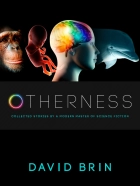Speculating about social & technological changes
Last year, the Pew Research Center asked a panel of tech experts to speculate about life would be like in the year 2025, taking into account changes in the aftermath of the pandemic – and other disruptive crises that may arise over the next few years. You can read the range of thought-provoking responses, which touched upon topics such as the future of economic and social inequality, as well as changes in the workplace due to increased automation, the rise of artificial intelligence and globalization. Discussions also focused on issues of sustainable energy, improved transportation and communication networks, and enhanced education opportunities. Many floated ideas about the near-term evolution of technologies that could improve the quality of life for vast numbers of people across the globe.
Below, I have reprinted my own response:
Assuming we restore the basic stability of the Western Enlightenment Experiment – and that is a big assumption, then several technological and social trends may come to fruition in the next five to ten years.
- Advances in cost-effectiveness of sustainable energy supplies will be augmented by better storage systems. This will both reduce reliance on fossil fuels and allow cities and homes to be more autonomous.
- Urban farming methods may expand to a more industrial scale, allowing similar moves toward local autonomy (perhaps requiring a full decade or more to show significant impact). Meat use will decline for several reasons, ensuring some degree of food security, as well. Tissue-cultured meat — long predicted in science fiction — is rapidly approaching sustainable levels. The planet, our health, our karma — and eventually, our wallets, will all benefit.
- Local, small-scale, on-demand manufacturing may start to show effects in 2025. If all of the above take hold, there will be surplus oceanic shipping capacity across the planet. Some of it may be applied to ameliorate (not solve) acute water shortages. Innovative uses of such vessels may range all the way to those depicted in my novel ‘Earth.’
- Full-scale diagnostic evaluations of diet, genes and microbiome will result in affordable micro-biotic therapies and treatments. AI appraisals of other diagnostics will both advance detection of problems and become distributed to handheld devices cheaply available to all, even poor clinics throughout the world.
- Inexpensive handheld devices will start to carry detection sensor technologies that can appraise across the spectrum, allowing NGOs and even private parties to detect and report environmental problems.
- Socially, this extension of citizen vision will go beyond the current trend of assigning accountability to police and other authorities. Despotisms will be empowered, as predicted in Orwell’s ‘Nineteen Eighty-four.’ But democracies will also be empowered (as I discuss in ‘The Transparent Society’) as those in power are increasingly held accountable for their actions.
- I give odds that tsunamis of revelation will crack the shields protecting many elites from disclosure of past and present torts and turpitudes. The Panama Papers and Epstein cases exhibit how fear propels the elites to combine efforts at repression. But only a few more cracks may cause the dike to collapse, revealing networks of blackmail. This is only partly technologically driven and hence is not guaranteed. If it does happen, there will be dangerous spasms by all sorts of elites, desperate to either retain status or evade consequences. But if the fever runs its course, the more transparent world will be cleaner and better run.
- Some of those elites have grown aware of the power of ninety years of Hollywood propaganda for individualism, criticism, diversity, suspicion of authority and appreciation of eccentricity. Counter-propaganda pushing older, more traditional approaches to authority and conformity are already emerging, and they have the advantage of resonating with ancient human fears. Much will depend upon this meme war.
Of course, much will also depend upon short-term resolution of current crises. If our systems remain undermined and sabotaged by incited civil strife and distrust of expertise, then all bets are off. You will get many answers to this canvassing fretting about the spread of ‘surveillance technologies that will empower Big Brother.’ These fears are well-grounded, but utterly myopic. First, ubiquitous cameras and facial recognition are only the beginning. Nothing will stop them and any such thought of ‘protecting’ citizens from being seen by elites is stunningly absurd, as the cameras get smaller, better, faster, cheaper, more mobile and vastly more numerous every month. Moore’s Law to the nth degree. Yes, despotisms will benefit from this trend. And hence, the only thing that matters is to prevent despotism altogether.
In contrast, a free society will be able to apply the very same burgeoning technologies toward accountability. We are seeing them applied to end centuries of abuse by ‘bad-apple’ police who are thugs, while empowering the truly professional cops to do their jobs better. It is not guaranteed that light will be used this way, despite many examples of unveiling abuses of power. It is an open question whether we citizens will have the gumption to apply ‘sousveillance’ upward at all elites.
But Gandhi and Martin Luther King Jr. likewise were saved by crude technologies of light in their days. And history shows that assertive vision by and for the citizenry is the only method that has ever increased freedom and – yes – some degree of privacy.


 But it’s more than that. A strong correlation shifts the Burden of Proof. When we see a strong correlation, and the matter at-hand is something with major health or safety or security implications, then we are behooved to at least begin taking preliminary precautions, in case the correlation proves to be causative. Sometimes the correlation is later demonstrated not to be causal and a little money has been wasted. But this often proves worthwhile, given long lead times in technology.
But it’s more than that. A strong correlation shifts the Burden of Proof. When we see a strong correlation, and the matter at-hand is something with major health or safety or security implications, then we are behooved to at least begin taking preliminary precautions, in case the correlation proves to be causative. Sometimes the correlation is later demonstrated not to be causal and a little money has been wasted. But this often proves worthwhile, given long lead times in technology. Those who use “Correlation is not the same as causation” as a magic incantation to dismiss all fact-using professions are fools holding a lit match in one hand and an open gas can in the other, screaming “one has nothing to do with the other!”
Those who use “Correlation is not the same as causation” as a magic incantation to dismiss all fact-using professions are fools holding a lit match in one hand and an open gas can in the other, screaming “one has nothing to do with the other!”











